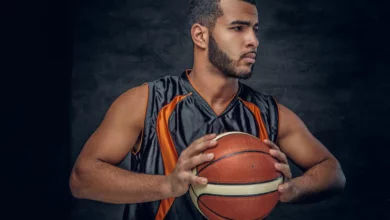7 Ways to Instantly Motivate Any Athlete

Whether you’re coaching young athletes or helping older ones improve their performance, there are many techniques you can use to motivate them to work harder and achieve more during practices and games. The following are seven ways to instantly motivate any athlete, no matter how skilled they already are or how long they’ve been playing the sport.
1) Compliment the Work, Not the Result
One of the easiest ways to motivate your athletes is by focusing on their performance, not their results. It’s easy for a coach or parent to dwell on what could have been but instead focus on what actually was but it’s harder to understand that some athletes naturally excel in certain sports more than others and recognize it.
Instead of honing in on how disappointed you are with your son or daughter’s final score, applaud them for putting forth their best effort and tell them how proud you are at how hard they fought and how quickly they improved. Acknowledging an athlete’s efforts will empower them while focusing on results can destroy confidence which is exactly what you don’t want.
2) Encourage With Assertive Praise
Don’t be afraid to give your athletes an honest assessment of their performance, but try not to be too critical. If they feel like you’re pushing them too hard or criticizing them unfairly, they may lose motivation. Instead, try using assertive praise as an honest but enthusiastic acknowledgment of their progress or performance to encourage and motivate them.
Example: I know you’re tired after practice today, but I want you to know how impressed I am with your work ethic on those sprints; that was impressive!
3) Play Their Game
Coaches and athletes are both guilty of putting their own desires ahead of those they’re tasked with coaching or playing for. For example, a baseball coach may be obsessed with winning and earning accolades at all costs, making it difficult for him or her to connect with or help develop an athlete who doesn’t share that mindset.
Or perhaps a collegiate athlete is on campus because it was expected of him or her rather than out of genuine interest in competing in his or her sport. The most effective way to motivate anyone is by connecting with them where they are, understanding what motivates them, and then using that knowledge as a springboard for mutual success.
4) Use Transitions Effectively
Sports psychologists have found that without proper structure, athletes become disengaged from their workouts. For example, some sporting environments make athletes come up with their own transitions when transitioning between stations. This can be detrimental because it puts pressure on an athlete who may feel unprepared for doing so.
Cricgator is a popular online cricket blog that covers all sports stories and articles related to cricket, cricketers, IPL news, World Cup Cricket, and other cricket-related information from all over the globe. Cric Gator blog is also one of the top cricket blogs in India.
Setting up effective transitions will keep your athletes engaged and prevent them from becoming bored or disinterested. Athletes who aren’t engage in a training session aren’t likely to improve performance, no matter how much effort they are putting into it. This can be easily avoid by setting up clear transitions with quick instructions that are easy for people to follow and understand.
5) Don’t Focus on Mistakes
Athletes often focus on mistakes they made while training, rather than what they did right. This can make it difficult for them to move forward since they’re constantly in a state of negativity. The best thing you can do is shift their focus away from mistakes and instead encourage them to think about all of their accomplishments. Make a list of everything they did well and emphasize how much they’ve improved over time. This should help motivate them and encourage them to keep improving!
6) Teach Through a Mistake
Coaches, there are a lot of ways you can inspire your athletes, but perhaps one of my favorites is making sure they learn from their mistakes. Highlight an athlete who made a mistake during practice and share what steps he or she took to correct it. By teaching by example, your athlete will learn how crucial it is for them to address weaknesses and correct errors if they want to improve their performance. A great lesson for kids and adults! who is just getting start in sports?
7) Have Athletes Embrace Failure
Athletes who embrace failure instead of fear it, will find success much easier. If you’re a coach looking for ways to motivate your athletes, try bringing failure into their lives. What do I mean by that?
Simple: instead of trying so hard to avoid mistakes and errors, have them make plenty of them and then challenge them not to let those failures define them. Instead of seeing mistakes as negative, present these moments as opportunities for growth and learning; successful people don’t succeed without experiencing some degree of failure. Athletes can learn from previous mistakes just like they can learn from success; by doing so, they’ll be able to improve performance in future competitions.




